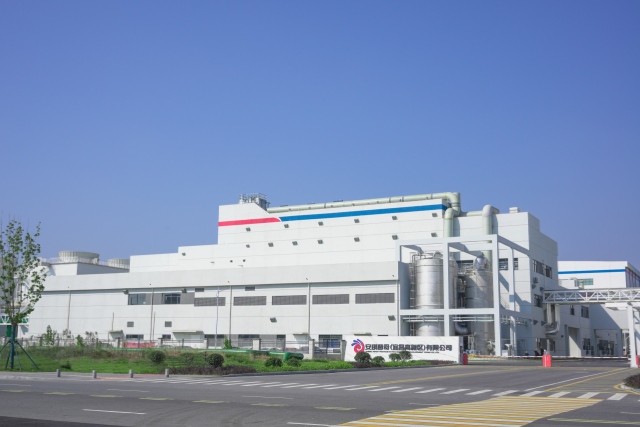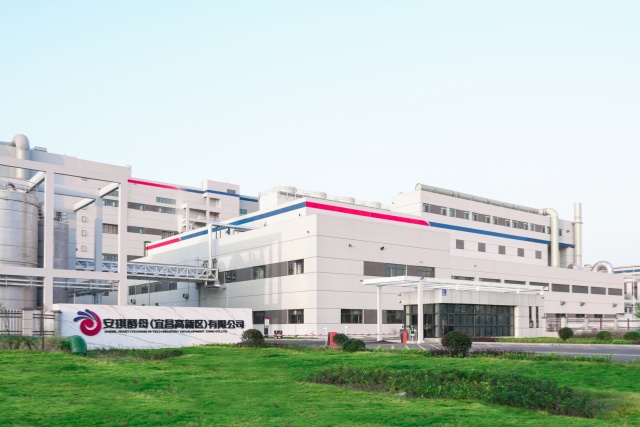-
Home > News & Events > News > Company
YICHANG, June 23, 2022 -- Angel Yeast attended the 2022 International Forum on Food Safety and Health (2022 IFoFSH), organized by the Chinese Society of Food Science and Technology, on June 23. The company announced plans to vigorously promote the industrialization of its yeast protein in an effort to address the impact of the growing global food crisis on society as well as the animal husbandry sector. To date, Angel has promoted its yeast protein globally for use in meal-replacement powder, drinks powder, sports nutrition supplements, as well as in other fields.

Angel yeast protein - a sustainable, efficient, and green alternative protein source
"The global population is expected to grow to 9.7 billion by 2050, according to the United Nations, and the gap between food access and population growth will grow increasingly evident, with a projected protein deficit of 250 million tons by 2050," said Qin Xianwu, Chief Quality Officer and Chief Engineer at Angel Yeast, during the conference. "With the rapid deterioration of the global climate, we are seeing increased deforestation as people look to snap up more arable land, as well as growing demand for meat, which in turn is accelerating the consumption of cereal grains. This, along with greenhouse gas emissions from livestock, means that building a sustainable, high-quality protein supply model has become an urgent matter."
"Angel Yeast will persist with its promotion of the industrialization of yeast protein while developing sustainable and more efficient yeast alternative proteins to help the world cope with the next global food crisis," Qin added. "Yeast protein tech is predicted to become the primary means of protecting the Earth's food supply in the future. It presents an alternative solution with advantages such as low resource consumption, high efficiency, environmental sustainability, and comprehensive nutritional value."
A sustainable, efficient, and green alternative protein source
Compared with animal protein, yeast protein has been found to be more environmentally friendly with reduced carbon emissions. A study published in the journal Nature found that annual deforestation and associated carbon dioxide emissions could be halved by replacing a mere 20 percent of beef production with yeast protein. At the same time, methane emissions would also be lowered. Compared to plant proteins, yeast-based alternatives require less arable land, and seasonal or climatic factors do not affect production efficiency. They also save on using pesticides or antibiotics, thereby avoiding the genetic modification issues associated with plant protein substitution. Yeast protein production is efficient. Some 1000 kg of yeast, soybeans, and cows that are cultured for 24 hours can produce a protein yield of 2000 kg, 10 kg, and 1 kg, laying bare the clear advantages of yeast protein.
Rich nutritional value
Compared with plant proteins, yeast-based alternatives are more nutritious. “Yeast protein contains eight essential amino acids that are full-valent proteins, while yeast protein is rich in lysine, typically the first limiting amino acid in plant protein. " said Qin. "Research on yeast protein shows it can have a significantly positive effect on muscle building and regulation of intestinal microbes."
Research and Applications
Angel currently carries out research on the selection and breeding of high protein yeast strains. This can contribute toward the company realizing batch production of high purity yeast protein while successfully applying it in fields like condiments, meat products, plant-based meat, dairy beverages, and nutritional foods.
Angel has also made good progress in developing technology for using yeast protein in vegetarian meat processing and vegetarian meat flavorings. The company has successfully used yeast protein to replace soy protein in vegetarian meat preparation. It can also help compensate for the lack of some essential amino acids (methionine and lysine) in vegetable proteins and improve the overall nutritional value of vegetarian meat products.
The company has built 12 yeast production lines at home and abroad to date, providing sufficient capacity to support yeast protein production. Angel boasts a production line with annual capacity of 10,000 tons of yeast protein, forming a closed-loop industry chain of "molasses, hydrolyzed sugar - yeast - yeast protein - yeast fermentation liquid - fertilizer - crops".







